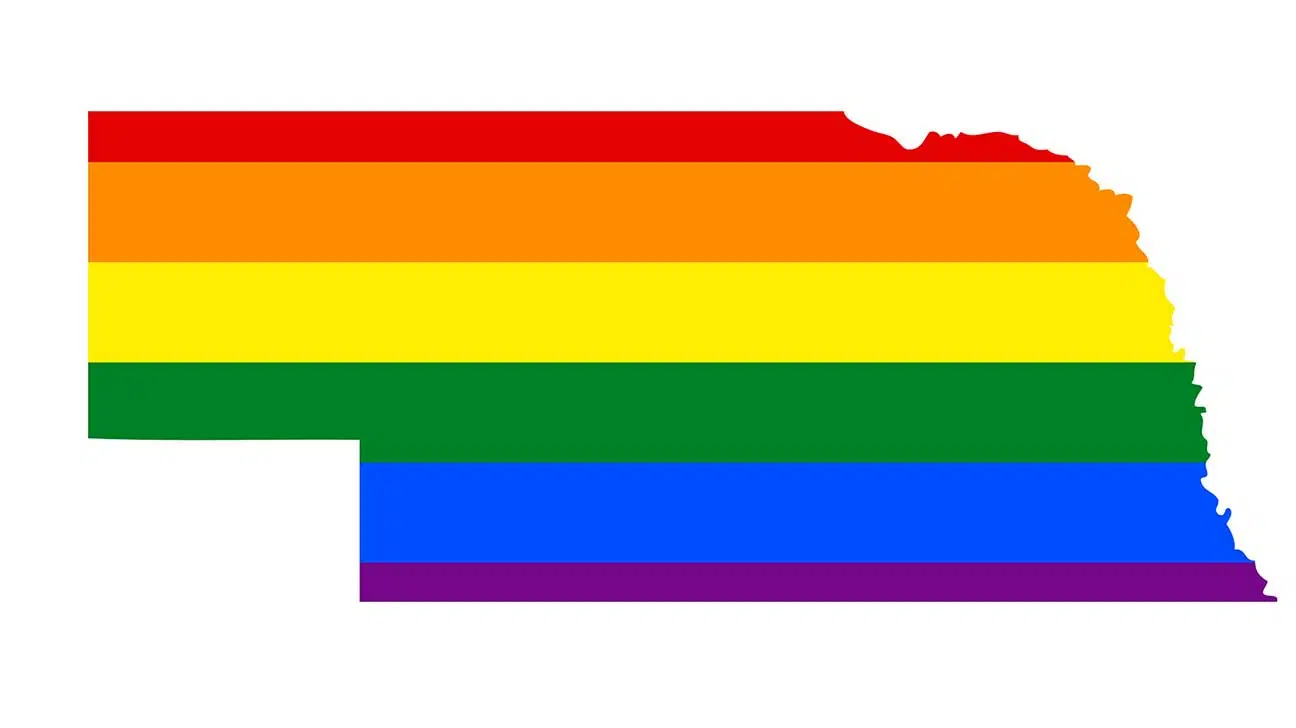
People who are lesbian, gay, bisexual, transgender, queer, or questioning their sexual orientation or gender identity are more prone to substance use disorders than the general population.
Alcohol and drug rehab centers for LGBTQ individuals in Nebraska may feature specialized treatment services to help address the needs of this population.
Such treatments may include specialized types of therapy, such as trauma-informed therapy, cognitive behavioral therapy, and dialectical behavior therapy.
Research has shown that LGBTQ people who enter a specialized substance abuse treatment program have a higher chance of long-term recovery success and a smaller chance for relapse.
LGBTQ+ Drug Rehab Centers In Nebraska
The following drug and alcohol addiction treatment center in Nebraska is specialized for the LGBTQ+ community and features partnerships with local healthcare centers and other accolades.
Sage Counseling, Omaha, Nebraska
Sage Counseling provides outpatient counseling services, as well as an intensive outpatient program (IOP) in Omaha, NE.
These programs are open to both adults and adolescents and treat a variety of mental health issues, including problems with substance abuse.
Therapists at this rehab center are both trauma-informed and LGBTQ-friendly.
Topics which may be addressed during counseling here include polyamory, kinks, open relationships, and consensual non-monogamy relationships.
Features of quality care at this rehab center include:
- member of the Nebraska Counseling Association
- member of the American Counseling Association
- high Google ratings
Location and contact information:
308 N 115th St.
Omaha, NE 68154
(402) 885-6980
How Common Is Substance Use In The LGBTQ+ Community?
Members of the LGBTQ+ community are much more likely to use drugs and alcohol to the point of addiction than their heterosexual counterpart.
They are also more likely to continue with drug use and alcohol use later into life.
Currently, around 4.5% of the United States population identifies as LGBTQ+ and there are over 7 million LGBTQ+ citizens with a substance use disorder.
Gay men and bisexual men and women are at an increased risk for contracting HIV/AIDS while under the influence and engaging in risky behaviors like unprotected sex or sharing needles.
Factors That Influence Substance Use In The LGBTQ+ Community
Everyone deals with stress in their lives regardless of sexual orientation or gender.
However, people who are LGBTQ+ may have additional stressors which make them more likely to lean on drugs or alcohol for support.
Reasons why LGBTQ+ individuals abuse drugs or alcohol may include:
- feeling confused about gender identity or sexual orientation
- lack of support from parents and siblings
- living with HIV/AIDS
- homelessness
- internalized homophobia
- lack of employment or finances
- harassment and bullying during childhood and youth
- distrust in the healthcare system or in the medical advice of treatment providers
What To Look For In A LGBTQ+ Drug Rehab Program In Nebraska
When looking for an optimal environment for healing from addiction, LGBTQ people should look for certain services which could be vital to their long-term sobriety and recovery.
Some of the most effective treatment services for LGBTQ+ people include:
- cognitive behavioral therapy and dialectical behavior therapy
- housing and employment assistance
- experiential therapies
- dual diagnosis treatment for co-occurring disorders and mental health disorders
- psychological assessments for gender-confirming surgery
- recreational activities and fitness
- group therapy
- intervention services and assistance
- inpatient treatment or outpatient treatment
- aftercare, sober living, or transitional living homes
FAQs For LGBTQ+ Rehab Facilities In Nebraska
The following are a few questions that are frequently asked regarding addiction treatment programs in Nebraska for members of the LGBTQ+ population.
Is Family Therapy Offered At LGBTQ+ Drug And Alcohol Rehab Centers?
Family therapy is often included in LGBTQ+ rehab centers, because members of this community often struggle with family conflict at home.
Addiction therapy for families focuses on bringing family members together into mutual understanding regarding addiction recovery.
Do I Have To Complete Detox Before I Can Attend A LGBTQ+ Rehab Center?
If you are attending outpatient treatment or a residential treatment center that does not have detoxification services, you will likely need to complete detox first.
It is incredibly important to achieve sobriety before the recovery process can continue.
Do LGBTQ Rehab Centers In Nebraska Offer Financial Assistance Plans?
Some LGBT rehab centers in Nebraska do offer financial assistance plans for people without health insurance, though what this includes may vary at each treatment center.
Sometimes, this means payment plans and other times the rehabilitation center will offer a sliding fee scale.
Find A LGBTQ+ Nebraska Drug Rehab Center Today
If you are a part of the LGBTQ community in Nebraska with unique recovery needs, we would love to help you find a quality substance abuse treatment facility near you.
Call our helpline any time to get started on the road to recovery.
Published on August 10, 2022
Addiction Resource aims to provide only the most current, accurate information in regards to addiction and addiction treatment, which means we only reference the most credible sources available.
These include peer-reviewed journals, government entities and academic institutions, and leaders in addiction healthcare and advocacy. Learn more about how we safeguard our content by viewing our editorial policy.
- Centers for Disease Control and Prevention (CDC) — Gay and Bisexual Men’s Health: Substance Use
https://www.cdc.gov/msmhealth/substance-abuse.htm - National Institute on Drug Abuse (NIDA) — Substance use and SUDs in LGBTQ* Populations
https://nida.nih.gov/research-topics/substance-use-suds-in-lgbtq-populations - National Institute of Health (NIH) — The Relationship Between Discrimination and Substance use Disorders Among Lesbian, Gay, and Bisexual Adults in the United States
https://www.ncbi.nlm.nih.gov/pmc/articles/PMC2937001/ - Substance Abuse and Mental Health Services Administration (SAMHSA) — Find treatment
https://findtreatment.gov
